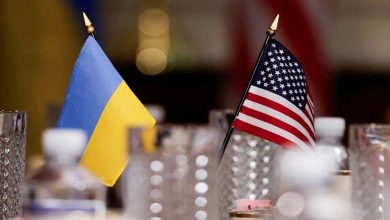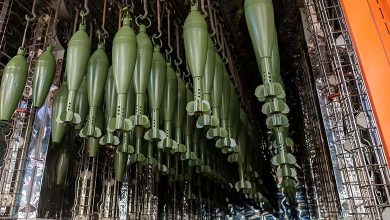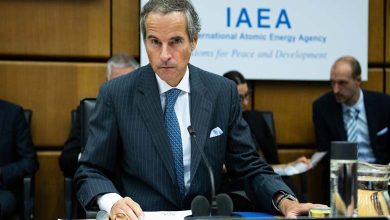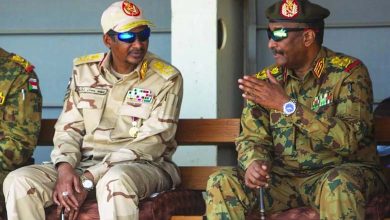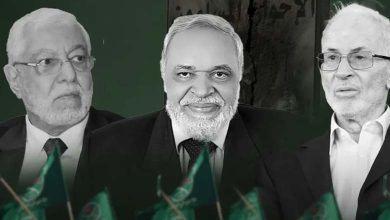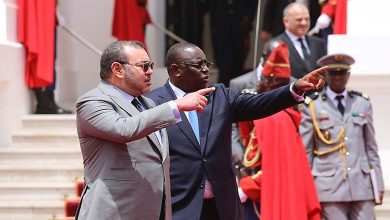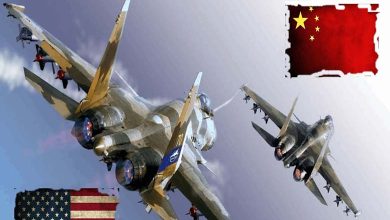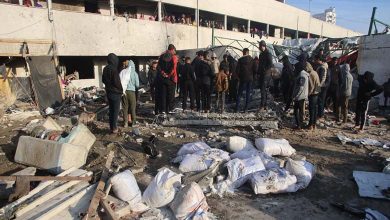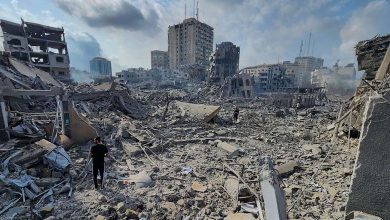Gaza War gives Russia an opportunity to strengthen its influence in the Middle East

Putin seeks to exploit Israel’s war against Hamas as an opportunity to escalate what he described as an existential battle with the West to impose a new global system ending American dominance
Russian President Vladimir Putin waited three days before making any comments on the Hamas movement‘s attack on Israel, which he described as a massacre and occurred on the seventy-first birthday of the Russian president.
When he did comment, he shifted responsibility for what happened to the United States rather than Hamas. At that time, he said to Iraqi Prime Minister Mohammed Shiaa al-Sudani, “I believe that many will agree with me that this is a clear example of the failed policy pursued by the United States in the Middle East, which attempted to monopolize the settlement process.”
Six more days passed before Putin spoke with Israeli Prime Minister Benjamin Netanyahu to offer his condolences for the killing of about 1,200 Israelis. Ten days later, Russia announced that a delegation from Hamas was present in Moscow for talks.
Political experts in Russia and the West say that Putin is trying to exploit Israel’s war against Hamas as an opportunity to escalate what he described as an existential battle with the West to impose a new global system that ends American dominance in favor of a multipolar system that is believed to be already emerging.
Sergei Markov, a former Kremlin advisor, wrote in his blog, explaining Putin’s position and the need to distinguish himself on the stage, “Russia realizes that the United States and the European Union fully support Israel, but they now embody evil and cannot be right in any way.”
He added, “Therefore, Russia will not be in the same camp as the United States and the European Union. Israel’s main ally is the United States, Russia’s main enemy at the moment. Hamas‘s ally is Iran, Russia’s ally.”
Russia has close relations with Iran, which supports Hamas and is accused by the United States of supplying Russia with drones for use in its war in Ukraine, a grinding conflict with Russia.
Hannah Notte, a Russian foreign policy expert based in Berlin, expressed her belief that Moscow has abandoned its previously balanced position on the Middle East and adopted “an explicit pro-Palestinian stance.”
She said, “Russia is well aware that by doing all this, it is aligning itself with parties and circles all over the Middle East and even beyond in the global South with their views on the Palestinian issue, where the Palestinian issue continues to be strong.”
These parties and circles are precisely the ones Putin is trying to win over in his quest to shape a new global system that weakens US influence, adding, “The most important way Russia will benefit from the Gaza crisis is by scoring points in the court of global public opinion.”
Russian politicians compared what they say is the carte blanche given by Washington to Israel to strike Gaza with Washington’s punitive response to the war Russia is waging in Ukraine, claiming it does not deliberately target civilians despite the deaths of thousands of civilians.
Senator Alexei Pushkov said that the West fell into a trap of its own making when it revealed the double standards it applies to different countries based on political preferences built on self-interest.
Pushkov wrote on the Telegram app, “The absolute support of the United States and the West for Israel’s actions is a strong blow to Western foreign policy in the eyes of the Arab world and the entire global South.”
Markov, a Kremlin advisor, mentioned that Russia considers the Gaza crisis an opportunity to strengthen its influence in the Middle East by portraying itself as a potential peace broker with relations with all parties.
Moscow offered to host a regional meeting of foreign ministers. Putin said Russia is in a good position to help, adding to an Arab television channel in October, “We have very stable and practical relations with Israel, and we have friendly relations with Palestine for decades, and our friends know that. From my point of view, Russia can also make its own contribution to the settlement process.”
Markov said there are also potential economic benefits in addition to the advantage of drawing financial and military resources away from Ukraine. He added, “Russia will benefit from the increase in oil prices resulting from this war… and Russia will benefit from any conflict the United States and the European Union allocate resources to because it reduces resources allocated to the system opposed to Russia in Ukraine.”
Alexey Malashenko, director of the Carnegie Russia and Eurasia Center, expressed his belief that Moscow has adjusted its policy in the Middle East due to the war in Ukraine.
He said, “My interpretation of this is that war has become the guiding principle of Russian foreign policy, and because of the relations with Iran, which bring the issue of military equipment into the equation. For example, Russia’s main military effort is more important than relations with Israel.”
Russia’s relations with Israel, which were usually close and pragmatic, have suffered. Moscow’s reception of a delegation from Hamas less than two weeks after the October 7 attack angered Israel, leading it to summon Russian Ambassador Anatoly Viktorov, sending a message “legitimizing terrorism.”
The annoyance was mutual, as the Russian Foreign Ministry summoned Israeli Ambassador Alexander Ben Zvi at least twice for talks, and representatives of both countries engaged in verbal sparring at the United Nations after Moscow’s representative questioned Israel’s right to self-defense.
Mikhail Bogdanov, a Russian Deputy Foreign Minister, said Israel had regularly stopped warning Moscow of airstrikes carried out inside Syria, Russia’s ally.
When an Israeli minister, who has been suspended from work since then, expressed his acceptance of the idea of Israel launching a nuclear strike on Gaza, Russia said the statements raised “a large number of questions” and wondered whether they constituted an official confession by Israel that it possesses nuclear weapons.
Amir Weintraub, a member of the Likud party led by Netanyahu, who is suspended from work, said Israel would one day punish Russia for its position. In an interview with the Russian RT channel in October, he stated, “We will end this war with Hamas… and then, Russia will pay the price.” He added, “Russia supports Israel‘s enemies. After that, we will not forget what you are doing. We will come, and we will make sure Ukraine will prevail.”



